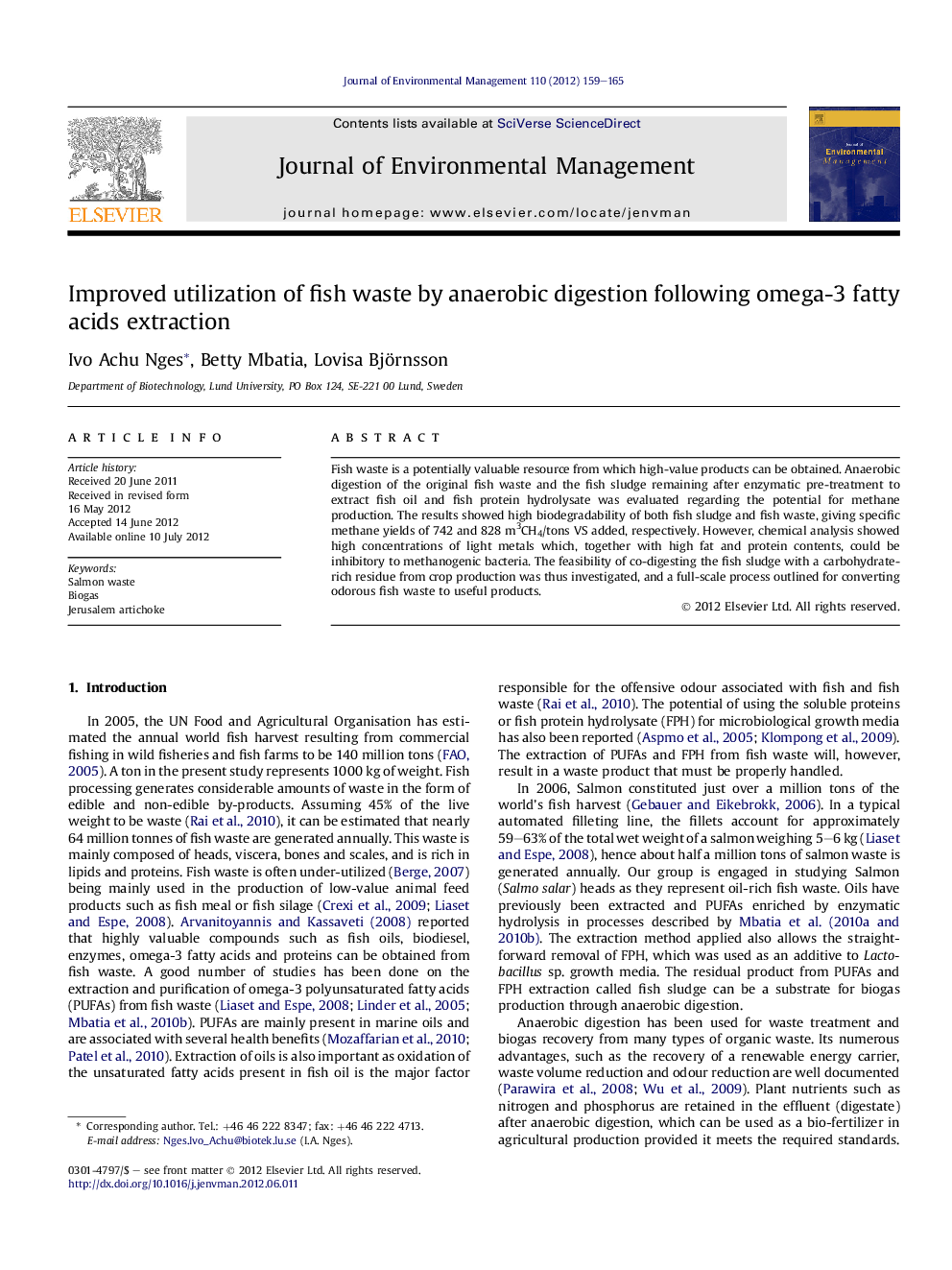| Article ID | Journal | Published Year | Pages | File Type |
|---|---|---|---|---|
| 1056516 | Journal of Environmental Management | 2012 | 7 Pages |
Fish waste is a potentially valuable resource from which high-value products can be obtained. Anaerobic digestion of the original fish waste and the fish sludge remaining after enzymatic pre-treatment to extract fish oil and fish protein hydrolysate was evaluated regarding the potential for methane production. The results showed high biodegradability of both fish sludge and fish waste, giving specific methane yields of 742 and 828 m3CH4/tons VS added, respectively. However, chemical analysis showed high concentrations of light metals which, together with high fat and protein contents, could be inhibitory to methanogenic bacteria. The feasibility of co-digesting the fish sludge with a carbohydrate-rich residue from crop production was thus investigated, and a full-scale process outlined for converting odorous fish waste to useful products.
► Odorous fish sludge was converted to renewable energy carrier, methane. ► Fish sludge has high content of light metal ions that can inhibit methanogens. ► Feasibility of co-digesting fish sludge and crop residue was demonstrated. ► The effluent compiled with Swedish certification standards for bio-fertilizers.
